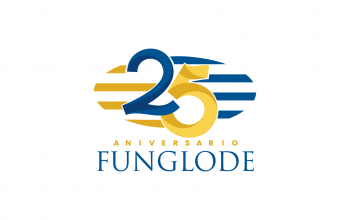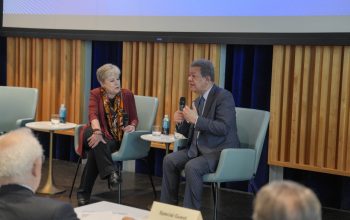news
“Donald Trump: The Return of Paranoid Politics”, an article by Dr. Leonel Fernández
March 15, 2016
His personality shows a certain air of delusions of grandeur, of arrogance, of egocentrism and megalomania. Everything has his name on it: the Trump jet, Trump Tower, Trump University, Trump Plaza Hotel, Trump Casino …
Following Barry Goldwater’s electoral triumph over Nelson Rockefeller in the Republican Party primaries of 1964, renowned American historian Richard Hofstadter elaborated the concept of what he called the
“paranoid style of American politics.”
This politics of paranoia (taken not in the clinical sense, but as a metaphor) consisted of emotionalistic collective behavior adopted by conservative groups, expressing a worldview dominated by an apocalyptic sense of destruction, aggression, and persecution by the nation’s enemies.
Examples of that politics of paranoia are found in different periods of American history: in the 17th
century witch-hunts in Salem, Massachusetts; in the 19th century rise of the white supremacist organization the Ku Klux Klan; and in the relentless anti-Communist persecutions unleashed by Senator Joseph McCarthy during the second half of the last century.
[“If Trump wins, it will mark the triumph of dissidents of the current states of affairs within the Republican Party.”]
Now, with the rise of Donald Trump as an
aspirant to the Republican Party’s presidential nomination, we are seeing the return of this paranoid style of American politics.
Donald Trump is a successful real estate entrepreneur whose various buildings, including Trump Tower and Trump International Hotel, built in an architectural style all their own, pepper several cities in the United States and the world.
He has also secured notable triumphs in the development of tourism projects, in
the promotion of gambling, in various sports, and in organizing beauty pageants like Miss America and Miss Universe.
THE PERSONALITY
But perhaps it’s been his eccentric, extravagant, and controversial personality that over the years has garnered him so much public attention.
His first wife, Ivana Trump, was a Czech model, and his current one, Melania Trump, is another ex-model from the former Yugoslavia. One of the greatest
frustrations in his world of fantasy, as he himself has admitted, is not having shared a night of pleasure with Lady Diana following her divorce from Prince Charles.
His personality shows a certain air of delusions of grandeur, of arrogance, of egocentrism and megalomania. Everything has his name on it: the Trump jet, Trump Tower, Trump University, Trump Plaza Hotel, Trump Casino.
His incursions into television with his program The
Apprentice turned him into a media celebrity, leading him to appear in cameos in a few film productions.
Despite having pegged his own net market value as equivalent to $10 billion, Forbes was more modest and placed it at $4 billion, reflecting his quite elevated debts.
He has been contemplating the idea of a run for the US presidency for 28 years, that is, since 1988. Originally he registered as a member of the Republican
Party, and later changed to become part of an organization called the Independent Party. Later he would join the ranks of the Democratic Party, then run as a candidate for the Reform Party, only to return, in recent years, to the Republican fold, from which now he hopes to win its presidential nomination.
In short, the only thing missing in the political career of the American billionaire magnate is to have created his own organization: the Trump Party.
Upon joining the other thirteen aspirants in the Republican presidential primaries, there initially appeared to be no possibility of triumph. It was seen more as one of Trump’s jokes, with no substance, a ploy to stay in the public eye and promote his businesses.
His first statements were catastrophic, attacking Mexican immigrants as narcotraffickers, rapists, and criminals. This is turn prompted the rupture of several business contracts, the
cancellation of different TV shows, and the rejection of the international community.
But Trump was undaunted. Rather than retract his statements, he continued with his policy of attacks and insults in a high-flown and arrogant style that has been perceived by his supporters as the behavior of a genuine person who says what he thinks, with no script, even when it’s not at the height of prudence or political correctness.
That style has, of
course, become his communications calling card, whereby he makes controversial, ambiguous, and foolish statements, and then, in the face of the inevitable adverse reaction, inflexibly and invariably stands by them. In this way he determines the agenda of the debate and stays on the offense at all times.
DIVISIONS IN THE REPUBLICAN PARTY
At the start of the Republican primary season, it was thought that the best-positioned contender for the presidential
nomination was Jeb Bush, ex-governor of Florida and son and brother of two previous presidents.
But that is not how things turned out. Bush never took off. Some may charge that there was incompetence or political inconsistency on his part, but the truth is that he never received the expected support—despite being part of a powerful political machinery and dynasty—due to being seen as precisely that: an establishment candidate from the party’s elite, its top
echelons.
Although for many years now the Republican Party has been divided into several factions or internal currents, since the triumph of Barack Obama in 2008 insurgent groups have arisen questioning the legitimacy of the political organization’s traditional leadership.
Among these groups initially arose the so-called Tea Party movement, an ultraconservative faction that saw relative success in the 2010 midterm elections.
Nonetheless, since then it’s been a bit overshadowed, giving way to a rise of factions in the party opposed to the continuity of the traditional leadership in directing the party and holding the main public offices in the country.
These are the so-called antiestablishment members, who are deeply enraged at the social, economic, and political situation of the nation, as well as worried about the demographic and cultural changes now occurring in the
United States.
It’s among these sectors—made up up blue-collar workers with low academic preparation, wage stagnation, no social mobility of any kind, and opposed to immigration and changes to traditional family structures—that Donald Trump has managed to connect both emotionally and politically.
Donald Trump has understood this. For this reason he has argued that he will deport the 11 million undocumented immigrants currently living the
United States; that he will build a wall on the border with Mexico, at Mexico’s cost; the he will ban the entry of Muslims; that he will raise tariffs on Chinese imports; that he will review all free trade agreements; and that he will make the United States of America the great power it used to be.
For Donald Trump, as well as his followers, what’s now happening in the United States is that the American Dream has disappeared. It’s been
destroyed by irresponsible Washington politicos who believe in an active role for the state, when really it’s the state that’s the problem.
Having won several primaries, and despite the continued electoral battle being waged by Ted Cruz, Marco Rubio, and John Kasich, all indicators currently point, against all original odds, to Donald Trump being on his way to winning the Republican presidential nomination.
This would mark the
triumph of dissidents of the current states of affairs within the Republican Party and the United States. It would be the victory of the antiestablishmentarians, of the rightwingers livid at the Obama administration and the Republican elite.
Naturally, a Trump candidacy will be no more than a reflection of the anxiety and uncertainty that have taken over important nucleuses in the country—a reflection of the racism and xenophobia that currently prevail, of the political
polarization that predominates, and, by extension, of the crisis of American democracy.
In short, a Trump candidacy would mark a return to the paranoid style that the United States has lived at different moments throughout its history. We can only hope that, with the eventual and hypothetical election of Donald Trump in November of this year as president of the main superpower on the planet, American paranoia does not contaminate the rest of the world.
Related Links: http://leonelfernandez.com/articulos/donald-trump-el-retorno-de-la-paranoia-politica/






